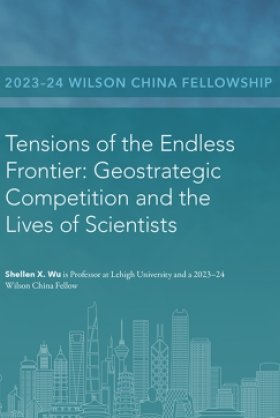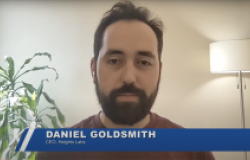Podcast - Presidential Bioethics Commission: New Genetic Technologies and Society
It may sound like the stuff of science fiction, but synthetic biology is becoming more and more commonplace. And as it becomes more commonplace, so do concerns about how we use it responsibly. Even simple-seeming bio hacks, such as making flowers glow or creating a breed of sterile mosquitoes, could have consequences for our ecosystem if they were released into nature. How should we safeguard against these possible risks?
Welcome to Ethically Sound: A podcast of the Presidential Commission for the Study of Bioethical Issues. I’m Hillary Wicai Viers. Today, we’re talking with Dr. James W. Wagner, former President of Emory University and Vice Chair of the Bioethics Commission. But let’s start with an introduction by Eleonore Pauwels of the Woodrow Wilson International Center for Scholars.
Introduction and Storytelling by Eleonore Pauwels:
"It was May 2010 in Washington, D.C. Along with many journalists crowding the room, I listened, transfixed, as biologist Craig Venter announced that his team had become the first to build a self-replicating bacterial cell in the lab. His words transformed a complex biological procedure into a sci-fi storyline: “This is the first self-replicating species we’ve had on the planet whose parent is a computer.” I felt uneasy – a knot in my stomach – thinking this would be the first introduction of synthetic biology to the public. As I like to explain it to my family, this new field of genetics is invaded by engineers and computer scientists, who want to build and control complex biological organisms.
I knew public deliberations had to include more than the potential biomedical benefits of synthetic biology. They had to address important ethical questions: How open will this new bio-industry be and who will benefit from its resulting innovations? What are the unknowns and long-term implications of modifying our genomes and the genomes of different species surrounding us? Who is in charge of anticipating potential risks and adapting regulation… and do they have sufficient foresight and understanding to do so?
Then, I remembered… Public opposition reflects not only technical misunderstanding but different conceptions on how to live well with emerging technologies. These technologies encapsulate transformative power. And knowledge is power. Knowledge is also responsibility. Today, we still face an unresolved question: How do we develop a culture of inclusive public deliberation and decision-making that could guide the integration of synthetic biology–and all new technologies–into society?"
Host:
That was Eleonore Pauwels, Senior Program Associate at the Woodrow Wilson International Center for Scholars. Like Eleonore, people around the globe were awed by the announcement that researchers at the Venter Institute had inserted a genome made by scientists into a bacterial cell, creating an organism not found in nature.
Proponents and critics were quick to point out potential risks and benefits of this discovery and whether it amounted to "creating life." President Barack Obama asked the Bioethics Commission to review the developing field of synthetic biology and identify appropriate ethical boundaries to maximize public benefits and minimize risks.
Synthetic biology, which involves the design of biological parts made by humans instead of nature, could lead to more effective vaccines and life-saving medicines, as well as biofuels that could someday replace the need for fossil fuels. But the technology also poses potential risks to the environment and public safety, should an organism created by humans be inadvertently released into nature. Acknowledging the enormous promise as well as potential threats posed by the emerging field of synthetic biology, the Bioethics Commission issued 18 recommendations in its report New Directions.
Listen to the Full Podcast and the Presidential Bioethics Commission's recommendations
Guest

Eleonore Pauwels
Formerly European Commission, Directorate-General for Research and Technological Development, Directorate on Science, Economy and Society

Science and Technology Innovation Program
The Science and Technology Innovation Program (STIP) serves as the bridge between technologists, policymakers, industry, and global stakeholders. Read more











